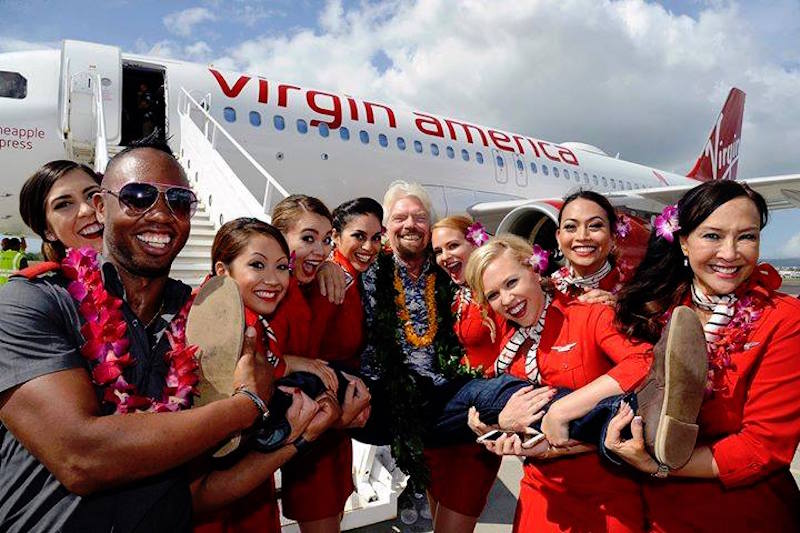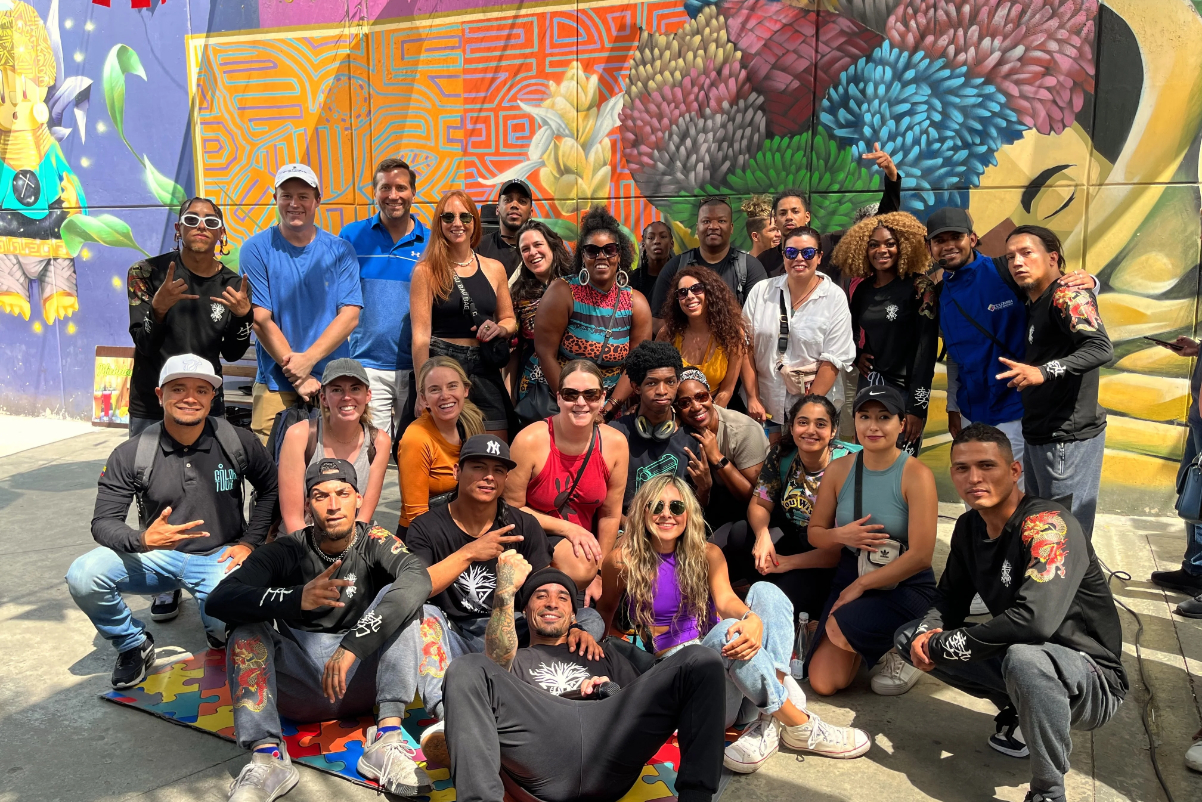Virgin America CEO Has Good and Bad News for Employees

Skift Take
For Virgin America’s 2,500 frontline employees, job security is likely in the offing with news that Alaska Airlines is acquiring the company — but some of the 5,000 or so other “teammates” might consider revising their resumes.
In a letter to employees [embedded below] yesterday, which was filed with the U.S. Securities and Exchange Commission, about the impact of Alaska Airlines’ $2.6 billion all-cash acquisition of Virgin America, CEO David Cush said: “All non-frontline teammates will be needed until the transaction is closed, which is a process that typically takes a number of months, and the vast majority will be needed even beyond that point. We will keep everyone updated as we learn more from Alaska.”
The deal is expected to close by January 1, 2017.
These non-frontline employees who are at risk because of duplicative airport and office operations might include positions such as maintenance personnel, airport team members, station supervisors, engineers, and other technology staff, for instance.
Cush said 8-year-old Virgin America did not seek the merger but nonetheless the ranks of frontline employees should see “much more stability and opportunity for growth.”
Revenue and Cost Synergies
The merger announcement “also means that our major bases of operation — including SFO and LAX — will not only remain, but grow, while also opening up substantial new opportunities across Alaska’s larger network,” Cush wrote. “The new combined network should provide substantial opportunities for our frontline Teammates, and all work groups with seniority rights will be integrated into single seniority lists using a fair and equitable process outlined by federal law.”
In the merger material that the airlines released, Alaska Airlines projected $225 million in annual revenue and cost synergies, which are expected to “ramp up quickly.”
The revenue synergies should include taking advantage of the combined networks, mix and matching the fleet of Boeing and Airbus aircraft, and from Alaska’s Bank of America loyalty program card partner.
Some 20 percent of the annual synergies — or $45 million to $50 million — is projected to come from cost-cutting.
“On the cost side, it is what you would expect it to be,” said Alaska Airlines CFO Brandon Pedersen April 4 during a conference call about the merger. “There are synergies available to us by combining facilities, airport facilities, corporate office facilities, services that we prepare as both companies. And then, of course, as we combine the back offices, there will be synergy that we get from that as well.”
Pedersen downplayed the potential impact. “… the beauty of this transaction is there isn’t a lot of overlap,” Pedersen said. “These are very complementary networks. If you look at prior mergers, it was about shrinking. This is actually about growing. We have opportunity to mix and match airplanes into different markets. We have an opportunity to connect the networks better. That’s where the synergy comes from. It’s a synergy of opportunity, not a synergy of reduction.”
Virgin America was to conduct an “all hands on deck” meeting with employees yesterday and was scheduling another one for employees with Alaska Airlines CEO Brad Tilden later this week.
Virgin America also communicated with “partners” and “travel partners” about the merger here.
Virgin America CEO David Cush’s Communication to Teammates
Dear Teammates,
I am writing to share the news that we have agreed to be acquired by Alaska Airlines. With complementary West Coast-based networks and similar cultures focused on customers, employees and operational efficiency, the joining of the two airlines will create a stronger, better and more competitive airline for our Teammates and guests.
Thanks to your efforts over the past eight years, Virgin America has truly changed the industry and forced other airlines to improve their product and guest experience. And along the way we won pretty much every industry award there is to win. So you may be asking: why merge now – after we only recently became a public company and are now achieving record profits and growth?
For one, the landscape of our business has changed dramatically in the past few years. We now work in an industry where just four airlines control more than 80 percent of the U.S. market – a reality that is putting increased pressure on smaller carriers, even successful ones like ours. By merging with Alaska at a time when both carriers are highly profitable, have strong balance sheets and are buoyed by a stronger economy and low oil prices, the combined airline will have a much stronger competitive position and greater opportunities for success. By joining forces with Alaska – an airline that, like us, has a strong position on the West Coast, a history of operational excellence, and an employee- and guest-focused culture – we are creating the best airline in North America and one with the size and market share necessary to compete in this consolidated environment.
While we did not seek out this merger, this combination provides much more stability and opportunity for growth for our frontline Teammates. Today’s announcement also means that our major bases of operation – including SFO and LAX – will not only remain, but grow, while also opening up substantial new opportunities across Alaska’s larger network. The new combined network should provide substantial opportunities for our frontline Teammates, and all work groups with seniority rights will be integrated into single seniority lists using a fair and equitable process outlined by federal law. All non-frontline teammates will be needed until the transaction is closed, which is a process that typically takes a number of months, and the vast majority will be needed even beyond that point. We will keep everyone updated as we learn more from Alaska.
Combining our two companies will create a more competitive airline with a lower cost structure, more long-term growth potential and significant combined revenue and network advantages. In particular, this includes combining Alaska’s network strengths in the Pacific Northwest and our own loyalty among high-value business travelers in key transcontinental markets along the West Coast. For our travelers, the merger will open up a much larger travel and rewards network, with a continued focus on award-winning customer service and an unmatched record of operational excellence. This combination allows us to maintain our promise to flyers to deliver high-quality service – while significantly expanding their flying options across a new network of over 100 destinations across North America.
Today’s announcement is the first of many steps to come before the transaction closes and we officially become one airline. Pending various legal and regulatory approvals, we expect to complete the transaction sometime in the next several months. This means that, until then, we will continue with business as usual and there will be no impact on your job. We will continue to provide our guests the award-winning service for which we are known, and we will continue to run an efficient, safe operation. The closing of the transaction will be followed by a multi-year integration process across all facets of our business. You will be hearing more from me and your Department leaders about the integration process and how it affects Teammates in the coming weeks, beginning with an upcoming All Hands meeting later today at 3:00 PM PT. We will also be scheduling another All Hands in person meeting next week, which will include Alaska’s leadership – including President and CEO Brad Tilden. You can expect a message from Brad this week as well – he and the entire Alaska team are eager to connect with our Teammates and discuss future plans for a successful integration in more detail.
Every Teammate at Virgin America – regardless of whether you’re new to the airline, or whether you’re been with us since our founding – should feel nothing but pride for all that you have accomplished. Nearly twelve years ago, we set out to build an airline from the ground up with the guest in mind – an airline that reinvented the flying experience, and that actually made air travel fun again. After close to nine years of flying, by every measure, you did exactly that.
I recognize that today’s announcement is unexpected and will lead to some uncertainty, but please know that we will provide regular updates throughout the process. You can find out more information on the acquisition and how it affects your workgroup at flyingbettertogether.com. Additionally, we encourage you to send us any questions related to today’s news to [email protected] so we can keep you up-to-date with the latest information.
Our mission has always been to create an airline that people love – and we accomplished that while changing the industry for the better. I believe that joining forces with Alaska will ensure that our mission lives on, and that the new, stronger airline will continue to provide a great place for our frontline Teammates to work and a leading customer experience for even more travelers across the country.
Thanks
David





